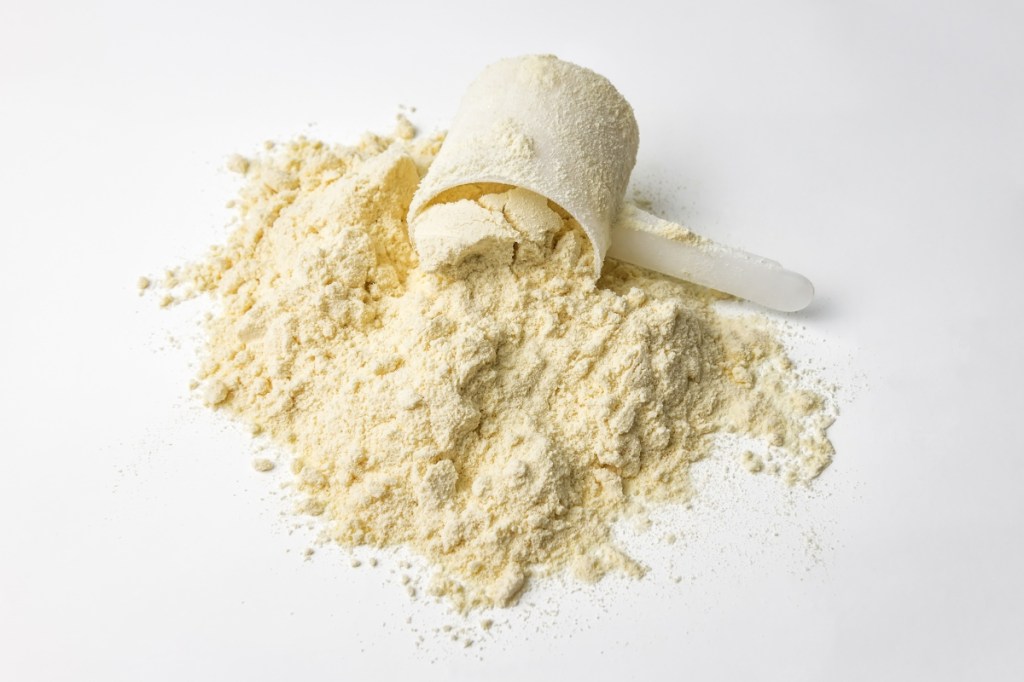Protein is a necessity. But took a look around at the grocery store lately and how all the stuff you’ve been buying for years suddenly has a protein-packed alternative version of it.
You’d think we were in the midst of some dire protein deficiency epidemic. Cereals, yogurts, pancake mix, ice cream, candy bars. Even the things we used to eat for pure pleasure now have to pack a wallop of protein.
It all raises a fundamental yet essential question: Do we really need all this protein?
That’s the question Margaret Murray tried to answer in her essay in The Conversation. Murray is a senior lecturer on nutrition from Swinburne University of Technology in Australia.
She argues that, of course, protein is essential. Vitally so. It builds muscle, makes enzymes and hormones, and helps your immune system. Along with carbohydrates, it’s the fuel you burn that powers you through the day.
But Murray argues that most people are already eating enough of it.

We Don’t Need To Be Eating This Much Protein
In her homeland of Australia, the average adult is eating well above the recommended amount of protein per day, consuming around 76 grams of protein a day on average. And that’s without ever having a single bowl of protein cereal, protein-enriched boxed mac & cheese, or protein-packed Pop-Tarts-style pastries.
All that protein isn’t necessary, unless your goal is to get so jacked that you want to make Mr. Olympia-era Schwarzenegger look like an infant. Beyond that, you’re not getting any added gains. And you sure aren’t cutting back on the stuff that’s expanding your waistline.
All you’re doing is adding a ton of calories to your diet; you are not adequately burning off or converting them into muscle. Your body doesn’t just send all of those extra calories out as easily as they came in. It stores the extra energy as fat.
Another matter folks packing their body with protein are not considering is where the protein is coming from. Animal protein, particularly from fatty sources, is linked to higher risks of heart disease, cancer, and type 2 diabetes. Meanwhile, plant-based proteins (beans, lentils, grains) come with fiber, better cholesterol, and longer life spans.
You need protein, but you don’t need to be packing your system with it. But if you’re going to do that for whatever reason, at least you can get it from sources that don’t come with a whole lot of other downsides
You don’t need to panic about protein. If you’re eating a balanced diet with a mix of plant and animal sources, you’re probably fine. You can maybe skip the third scoop of whey, packing your body with so much protein that it ends up having the opposite of the intended effect, and eat some lentils.
The post What Happens When You Eat Too Much Protein? appeared first on VICE.




